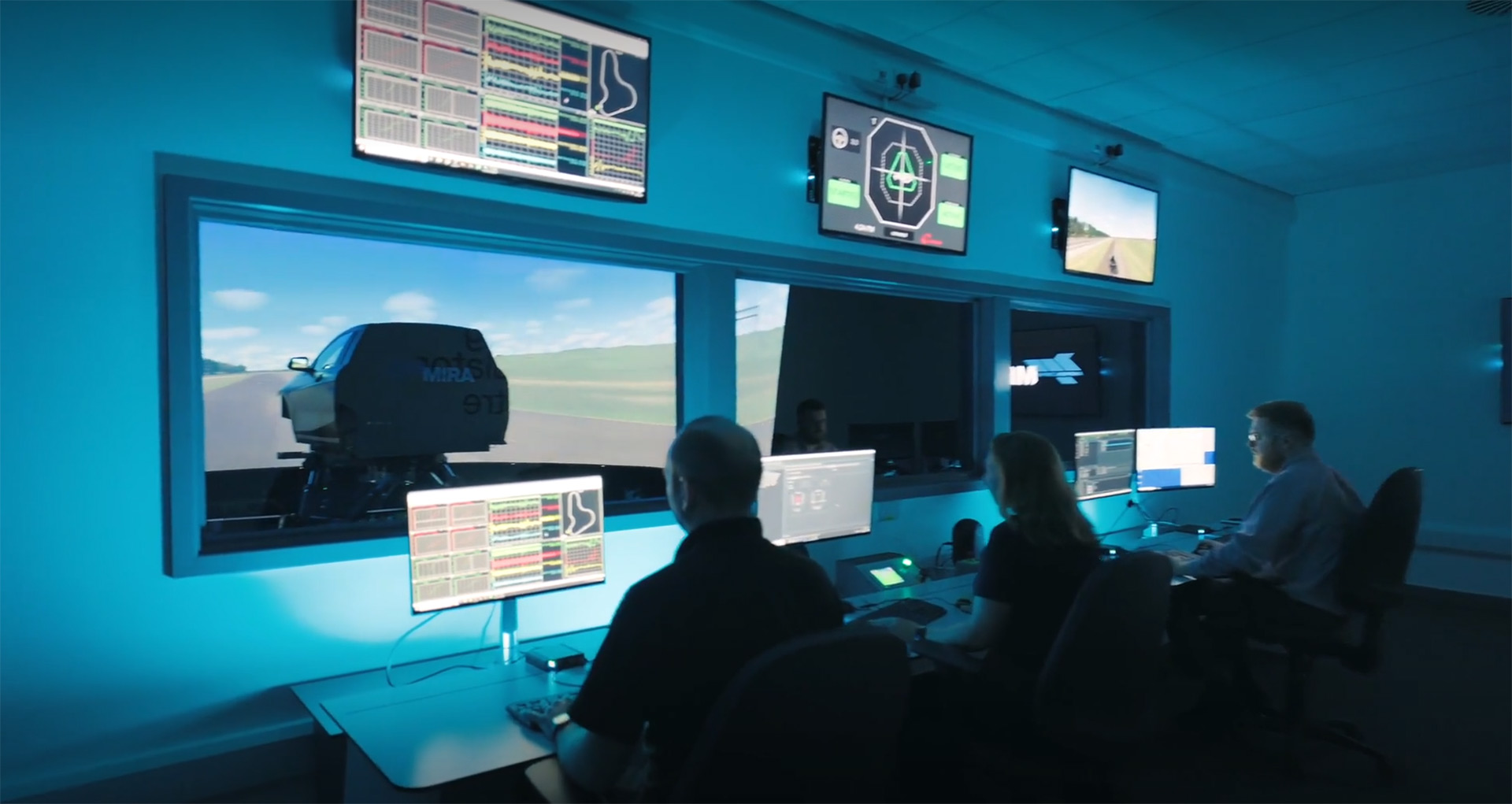Driving Simulator Centre
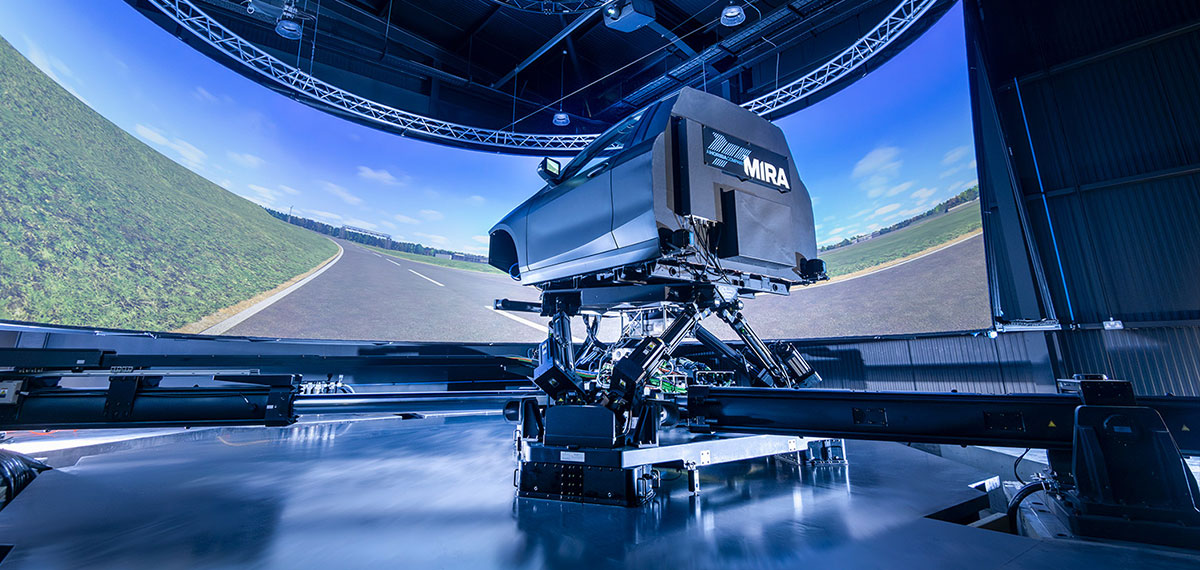
With the automotive industry aiming to reduce product time to market, programme risk and cost, the reliance on simulation for virtual vehicle development has never been greater.
Simulation can take months off the duration of a vehicle development programme by reducing the number of physical prototypes needed and the time required for core attribute development.

The UK’s first VI-grade DiM250 Dynamic Simulator
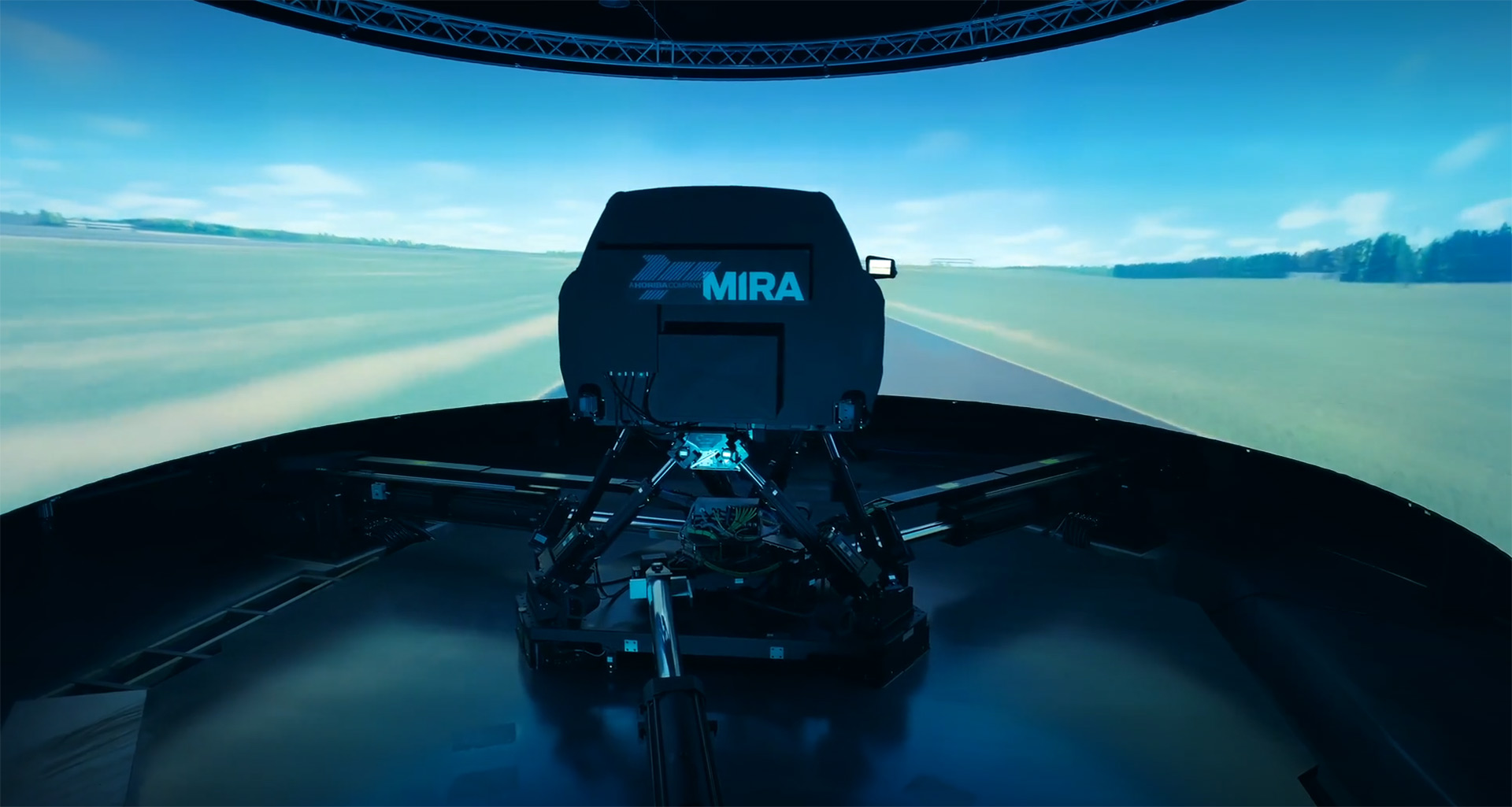
At the heart of the new Driving Simulator Centre is the UK’s first VI-grade DiM250 Dynamic Simulator, one of the world’s most advanced and high-performance dynamic motion driving simulators. Use of the simulator significantly reduces the need for physical vehicle testing and prototypes, reducing associated carbon emissions. For a typical vehicle development using the simulator it is possible to avoid approximately 80 tonnes of carbon dioxide equivalent (CO2e).
Customers utilising HORIBA MIRA’s Driving Simulator Centre will also get access to its VI-grade COMPACT simulator, acquired in 2021, conveniently located within the same facility.
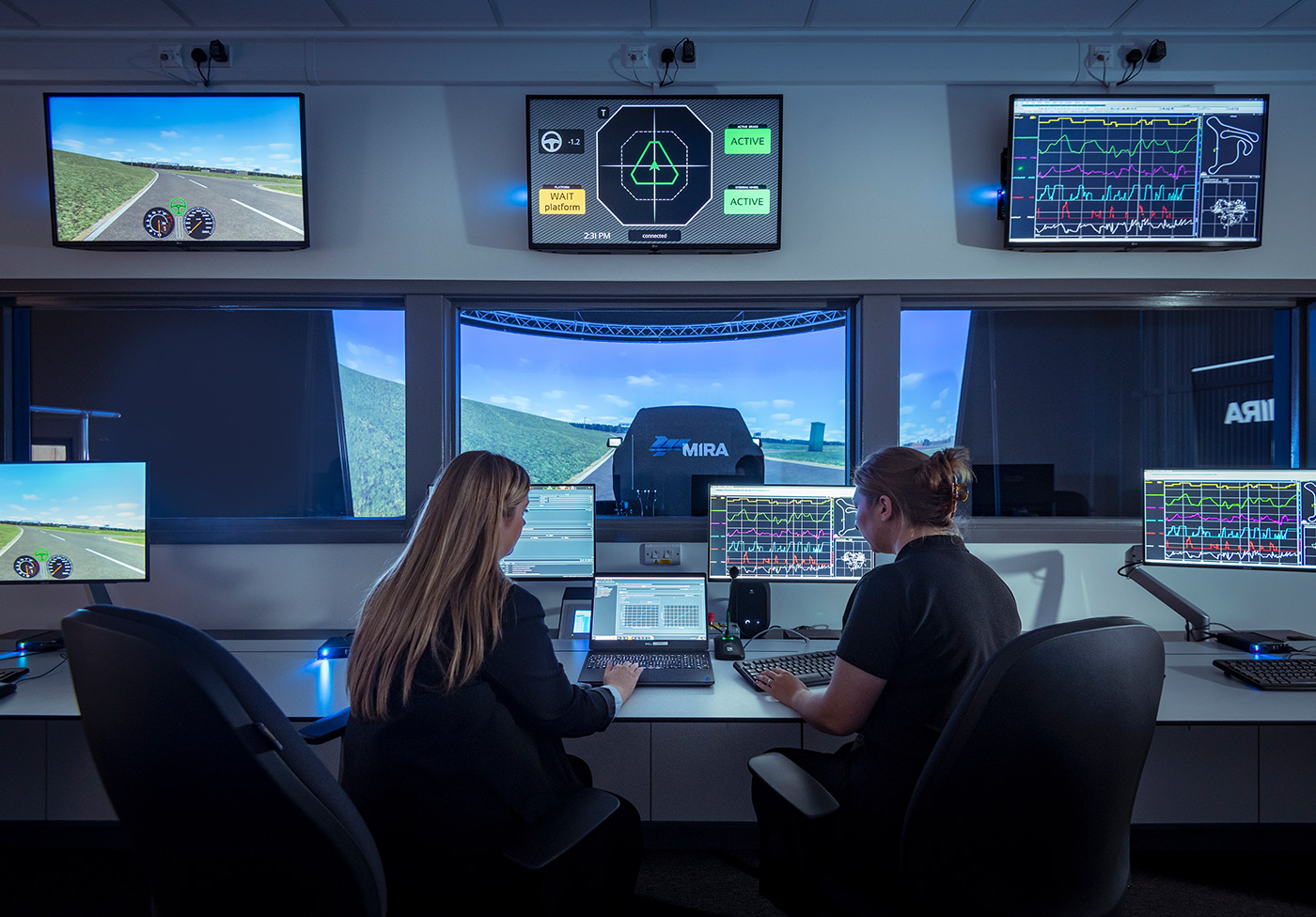
Now, technology start-ups, disruptors and established OEMs can significantly enhance their vehicle attribute performance while reducing product development time, risk and cost by utilising our advanced VI-grade compact driver-in-the-loop simulator and attribute development services:
- Vehicle dynamics
- NVH
- Braking
- Performance and durability
The ability to evaluate and measure a vehicle’s performance using our Proving Ground coupled with other facilities such as our Damper Development Facility, which incorporates the latest rig technology, allows us to correlate models and enhance the simulator experience.
Continued research and development in the auto population of modelling software packages with measured suspension parameters from Kinematic & Compliance test data, significantly reduces model build time. Alongside the physical measurement to model population process, we have developed new techniques to enhance the model build process, from design intent suspension system and component level characteristics.

VI-grade COMPACT simulator
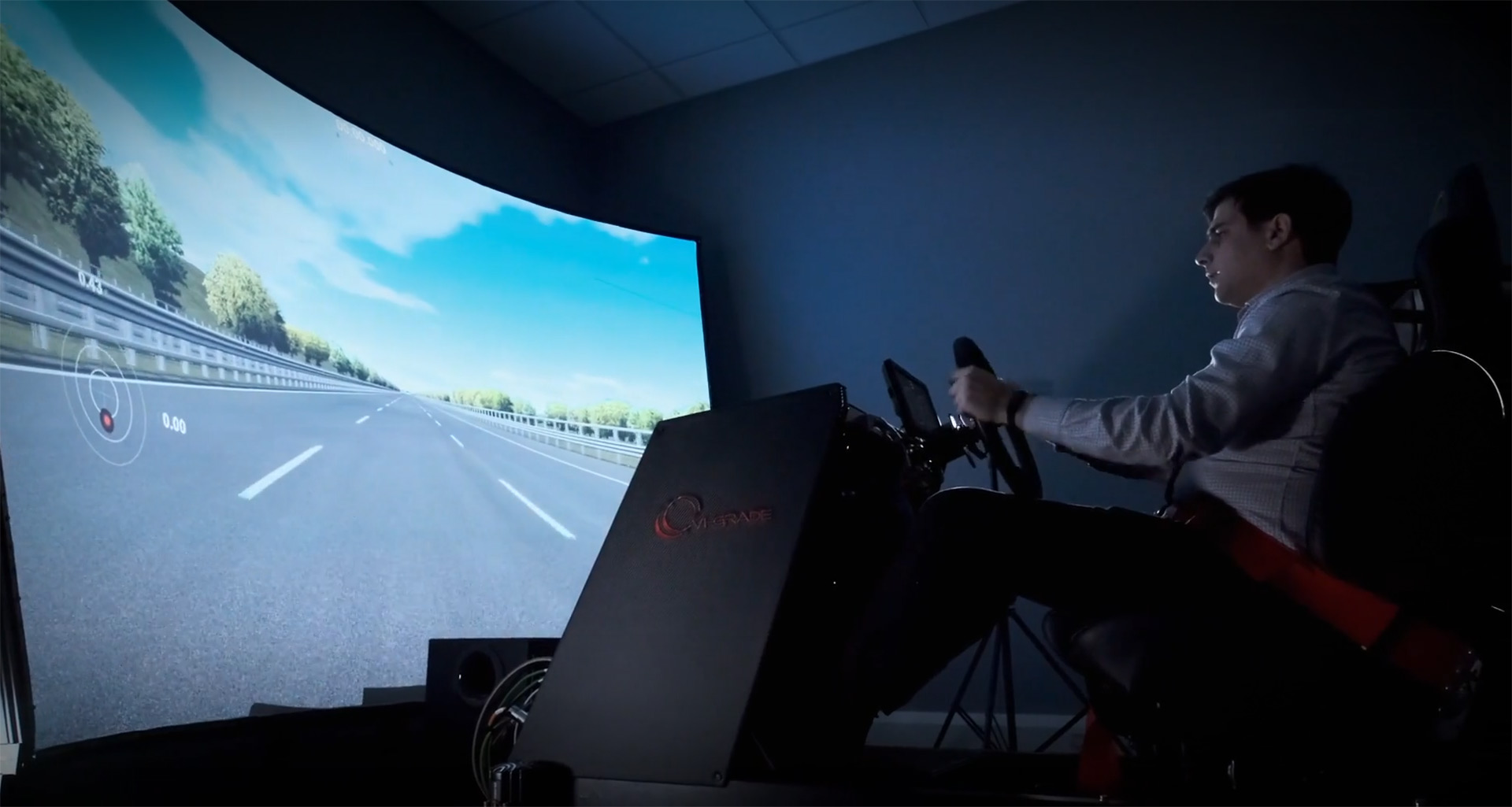

Driving Simulator Centre Fly Through
